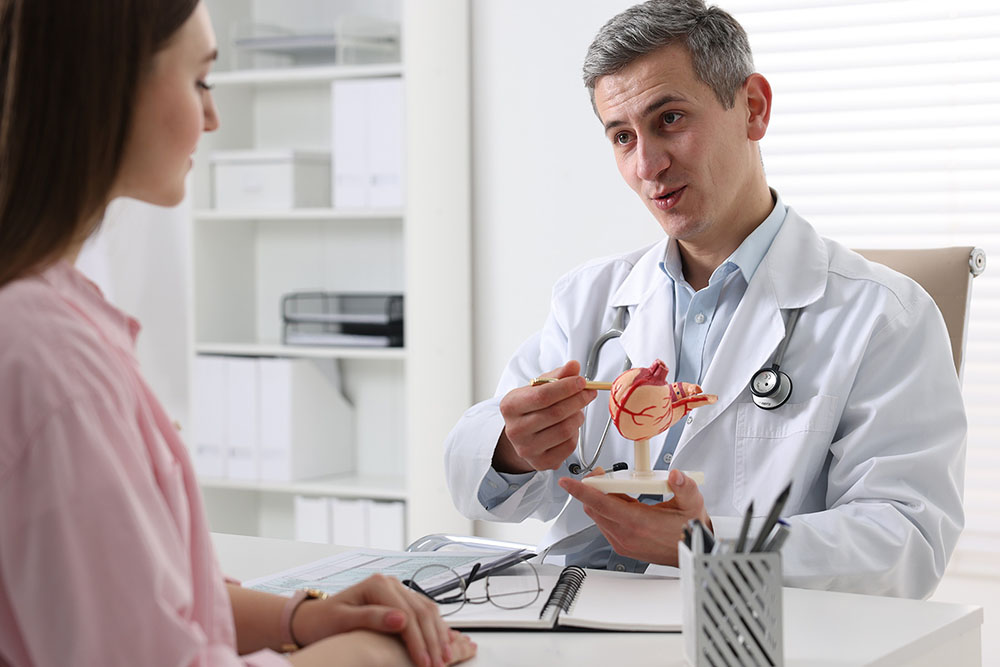
Endoscopy is something that can become quite questionable. Is it painful? Will I be asleep? What can it find? Dr. Bharat Pothuri, in this easy-going guide, responds to all your queries in a simple manner. You can be in the Texas Medical Center neighborhood or any other part of Houston and you are covered.
An endoscopy is a painless procedure that doctors can use to check the inside of your body. It entails the use of a slender and elongated tube known as endoscope. The endoscope has:
It enables us to examine the lining of your digestive tract at a close, says Dr. Bharat Pothuri. We do not have to make a big cut to see inflammation, ulcers, or growths.
Endoscopy might be ordered by your doctor when you present with such symptoms as:
Endoscopy assists in determining the cause. It is more precise than X-rays on numerous conditions. According to the American Gastroenterological Association, it is the gold standard in viewing your esophagus, stomach and some of the small intestine.
Endoscopies differ in the location of the camera:
The types are similar in the scope and differ in the area.
Preparation will help your endoscopy go by with ease. The typical inquiry of most Houston GI centers will require you to do the following:
One of the best questions: Did it hurt to have an endoscopy? The majority of the patients indicate that they experience pressure or minor discomfort rather than actual pain. It is the secret, good sedation, and your loose throat or gut.
According to Dr. Pothuri, we apply numbing sprays and conscious sedation with our method in the Texas Medical Center in Houston. You will hardly recollect a thing.
You may also want to discuss additional local anesthesia with your gastroenterologist in case you remain uncomfortable.
Will they have you completely asleep to do an endoscopy?It is the case of your health and the office:
Moderate sedation is a norm in the leading GI clinics in Houston. You can keep control of reflexes but will not experience discomfort.
How is the duration of an endoscopy procedures? Pipe up your watch:
Overall time during the suite is approximately 1- 2 hours. Reserve one-half day to park, to check in and to have rest after each procedure.
What can be identified by an endoscopy?A lot! Here are common findings:
Endoscopy is more than diagnostic as it is therapeutic as well, adds Dr. Bharat Pothuri. Polyps may be removed, bleeding vessels avoided or dilated strictures dilated where they are.
One of the common concerns: Is endoscopy a significant surgery? Generally, no. It is thought to be least invasive. Here's why:
Nevertheless, there is a risk in any procedure. When you require general anesthesia or an ERP, then you have to know about the possible complications.
Although the side effects are serious and are unlikely, you should be aware of endoscopy side effects:
In case of severe belly pain, fever, or excessive bleeding, call your GI team or visit your closest E.R. immediately.
| Sedation Type | Conscious Sedation | Deep Sedation / GA |
| Patient Status | Drowsy, able to obey simple orders only | Asleep, unaware of anything |
| Airway Control | Self-breathing patient | May require breathing tube |
| Recovery Time | 30-60 mins | 60-120 mins |
| Common Us | Routine EGDs/colonoscopies | Complex ERCPs/ nervous pts |
In Houston or Harris County, in general, remember the following:
An endoscopy is a safe and effective method of inspection of your digestive tract. Under contemporary sedation techniques, a majority of individuals experience little or no pain. It also takes just a few hours to complete and it may identify or cure a lot of diseases at an early stage.
It is what Dr. Bharat Pothuri concludes: We strive to ensure that your endoscopy is as easy as it can be. Early diagnosis can create life and in this case, in Houston where GI cancers are still prevalent.
To learn more about the endoscopy preparation process, refer to the guide to endoscopy supplied by the Mayo Clinic, or consider the best practices presented at the National Institutes of Health.
Hopefully, now, your endoscopy trip has become a much easier and stress-free experience with this guide. When you are in Houston and require an expert and friendly GI team, come to Gastrodoxs and meet with Dr. Bharat Pothuri today.
No. You will receive tranquilization and anesthetic spray. The majority of patients complain of mild discomfort at the worst.
Typically, you are subject to conscious sedation. Deep sedation or general anesthesia is applied in a few instances.
Ulcers, GERD, celiac disease, polyps, colorectal cancer, Crohn, ulcerative colitis and others.
It is low invasive and generally outpatient. Major with or without ERCP or general anesthesia.
Approximately 1-2 hours overall, prep, and recovery.
Sore throat, bloating, mild cramping. Bleeding, infection, or perforation is rarely seen.
No. You require someone to drive you because you are seded.
Early results regularly spoken of the same day. The results of the Biopsy require 2-5 business days.
Yes. No solids 6-8 hours before. Crystallized liquids all right until 2 hours ago.
Most patients do. Had you been profoundly sedated, you would sleep an extra half-day.